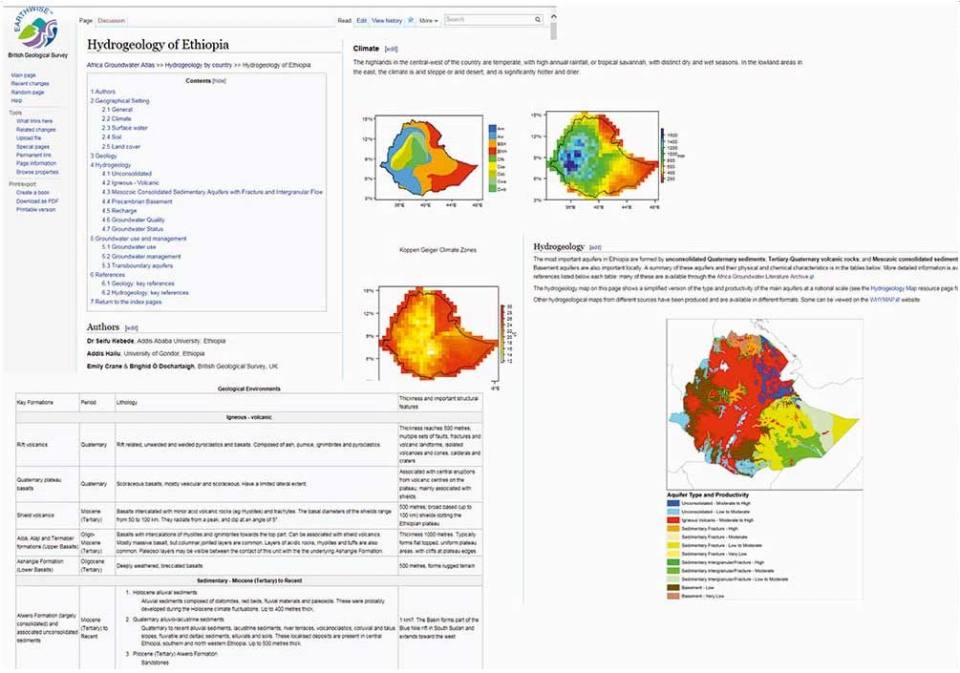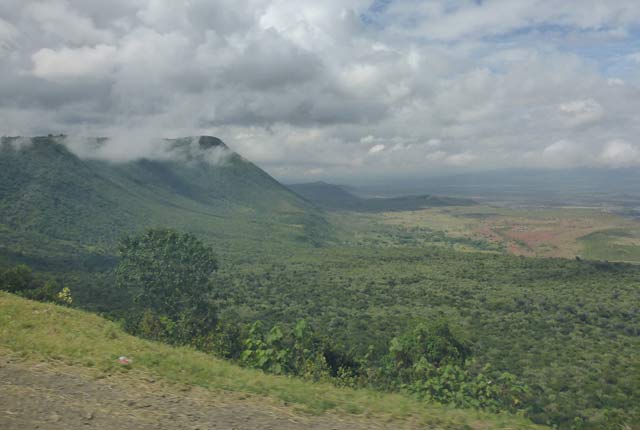The successful and sustainable development of groundwater resources in East Africa is critical to the future delivery of safe water supplies, economic growth, reliable energy and food security in the region. Demand for groundwater is likely to be exacerbated by climate change impacts on rainfall patterns and population growth, industrialisation and socio-economic development.
The Southern African Development Community (SADC) identified a regional desire for enhanced training and capacity building in groundwater management and water governance in their 2016 regional strategic action plan. Effective groundwater management requires a good understanding of hydrogeology, including access to high-quality data.
An introduction to the groundwater resources of 51 African countries

Hydrogeology of Ethiopia pages in the Africa Groundwater Atlas. Source: BGS Earthwise.
A BGS team, in partnership with hydrogeologists from across Africa, has developed an online Africa Groundwater Atlas and Africa Groundwater Literature Archive. These aim to improve access to information on the geology and hydrogeology of 51 African countries (including Ethiopia, Kenya, Malawi, Tanzania, Uganda, Zambia and Zimbabwe).
The groundwater atlas provides an introduction to national groundwater resources for the 51 countries, and is a gateway to further information, while the groundwater literature archive allows users to search for country- or theme-specific groundwater literature. Together, these platforms publicise expert knowledge of African groundwater and allow development professionals, scientists and governments to access this knowledge.
This work was jointly funded by the Department for International Development (DfID), NERC and the Economic and Social Research Council (ESRC), supported by the International Association of Hydrogeologists (IAH). It is part of the Unlocking the Potential for Groundwater for the Poor (UPGro) research programme.
The Africa Groundwater Atlas was formally launched in 2016 at the Seventh Rural Water Supply Network (RWSN) Forum in Abidjan, Côte D’Ivoire.
Sustainable Developments Goals
This project helps to directly address UN Sustainable Development Goal (SDG) 6: clean water and sanitation. Through wider development it will also help to address many other SDGs, for example:
- no poverty (SDG1)
- zero hunger (SDG2)
- good health and wellbeing (SDG3)
- gender equality (SDG)
- sustainable cities and communities (SD11)
The approach used is coherent with the aims of SDG17 (partnerships for the goals) to enhance north–south, south–south and triangular regional and international cooperation on and access to science, technology and innovation (target 17.6).
Contact
If you want to discover more then please contact bgsoda@bgs.ac.uk.
You may also be interested in

Integrated resource management in Eastern Africa
Our current activities build on the BGS’s extensive research experience in this region, contributing to welfare and future economic growth by the responsible use of natural resources.



